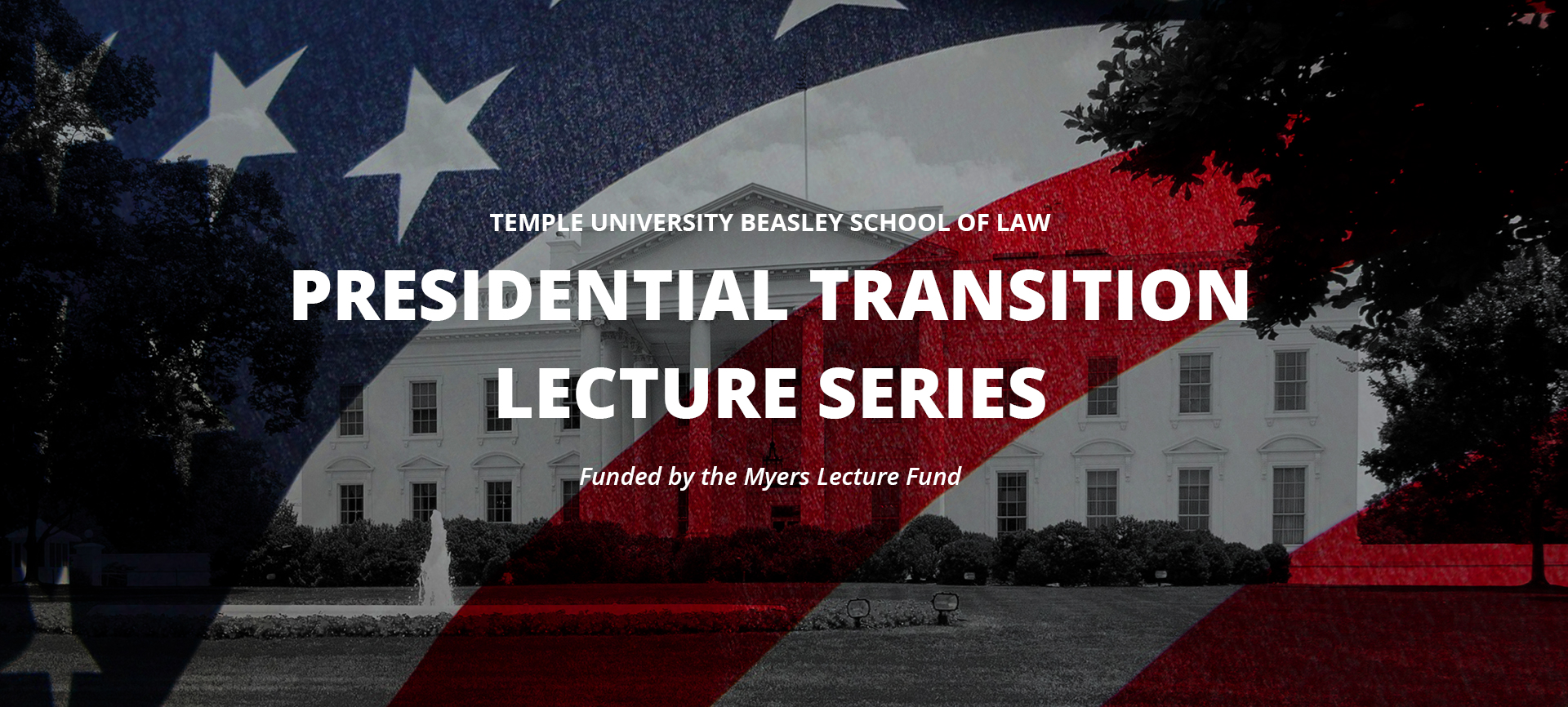Bill Marimow, the Editor and Executive Vice President of The Philadelphia Inquirer, spoke to Temple Law about the relationship between President Trump and the media, the post-election role of local papers, and a wide variety of related topics. His visit on Tuesday, January 17, was the first event in the Presidential Transition Lecture Series organized by Professor Laura Little, who conducted an engaging and wide-ranging interview with Marimow.
“Read papers that don’t necessarily align with your politics and think critically about their editorials.”
Professor Little asked Marimow about the “rules of engagement” between the Trump administration and the media, a relationship Marimow called “extremely antagonistic.” Marimow explained that while the president-press relationship constantly evolves from one president to the next, the relationship between Trump and the media is characterized by his fighting back when criticized and viewing issues in “black and white.” Marimow went on to explain that the President, while he needs a medium to communicate with the world, is less reliant on traditional media and more reliant on social media. He emphasized that under the Trump administration, the role of the press is “analyzing, dissecting, [and] scrutinizing” the new state of affairs—a role more important now than ever.
While the press has an important role in democracy, especially at critical moments, it is not perfect. Marimow noted a mistake the Inquirer made during the election; it did not listen closely enough to people in counties that supported Republicans by large majorities. Moving forward, he said, “it’s incumbent on us . . . large media organizations that are dominating the regions . . . to listen more carefully to the citizenry.” The Inquirer plans to do so as the Trump presidency unfolds.
As for advice on staying informed in an era of divisive politics and fake news, Marimow said, “very carefully consider the source.” “Read papers that don’t necessarily align with your politics and think critically about their editorials,” he said. He compared this approach to mastering the defense’s argument as a prosecutor and vice versa—it is critical to understand the facts and opinions that push back against your own.


